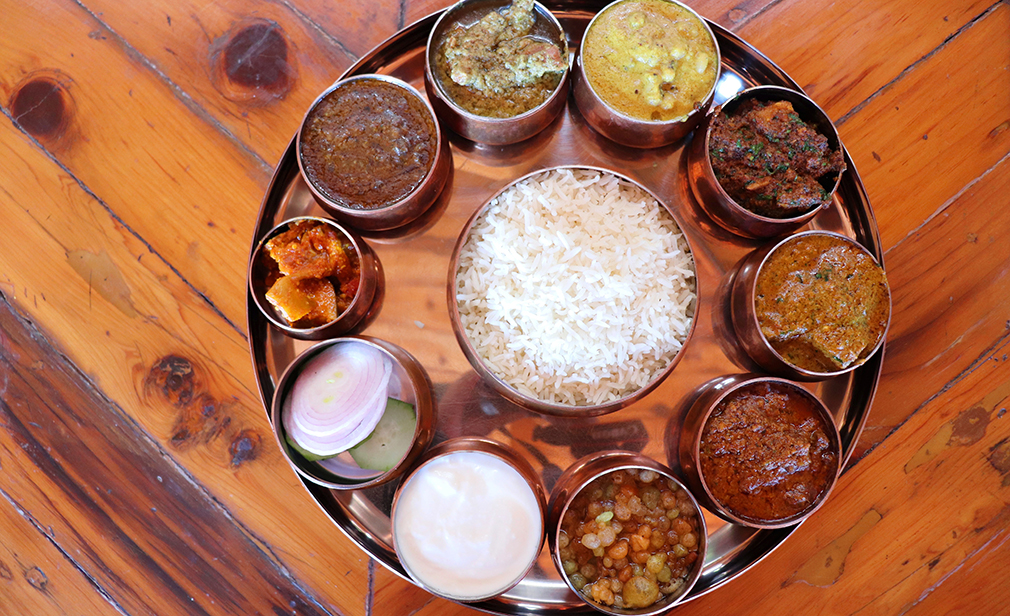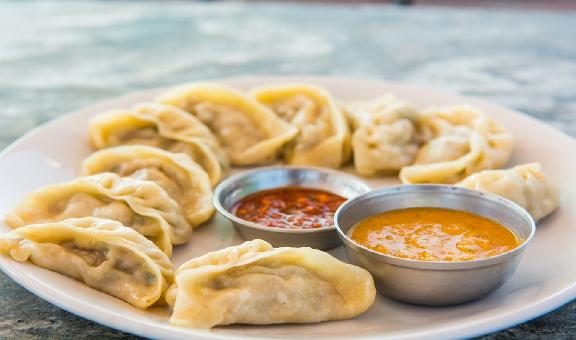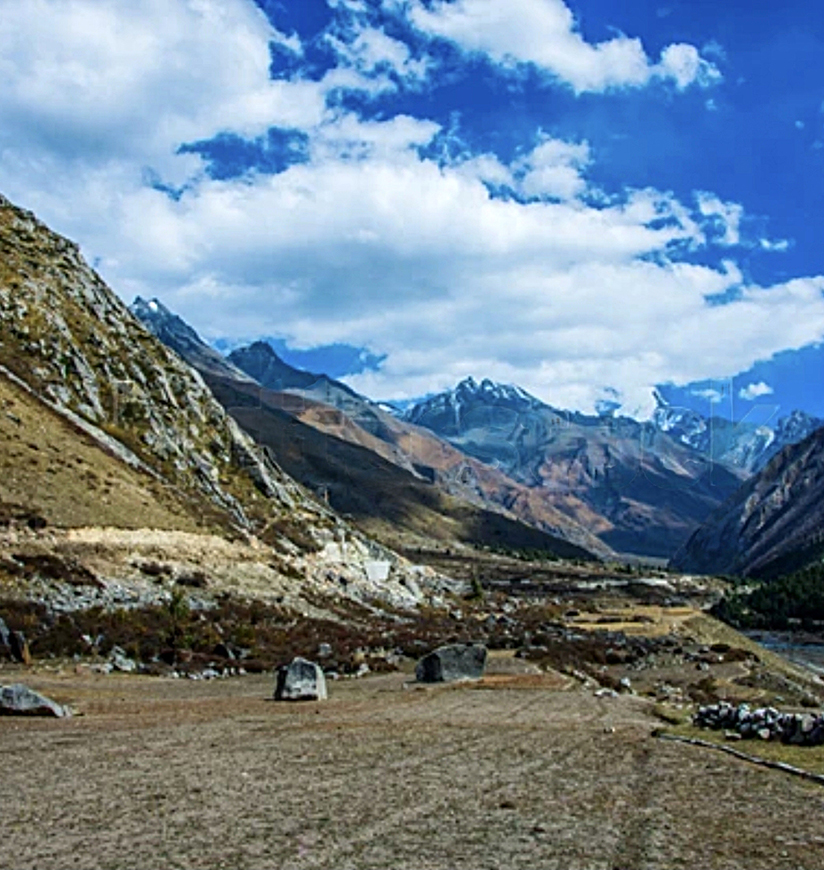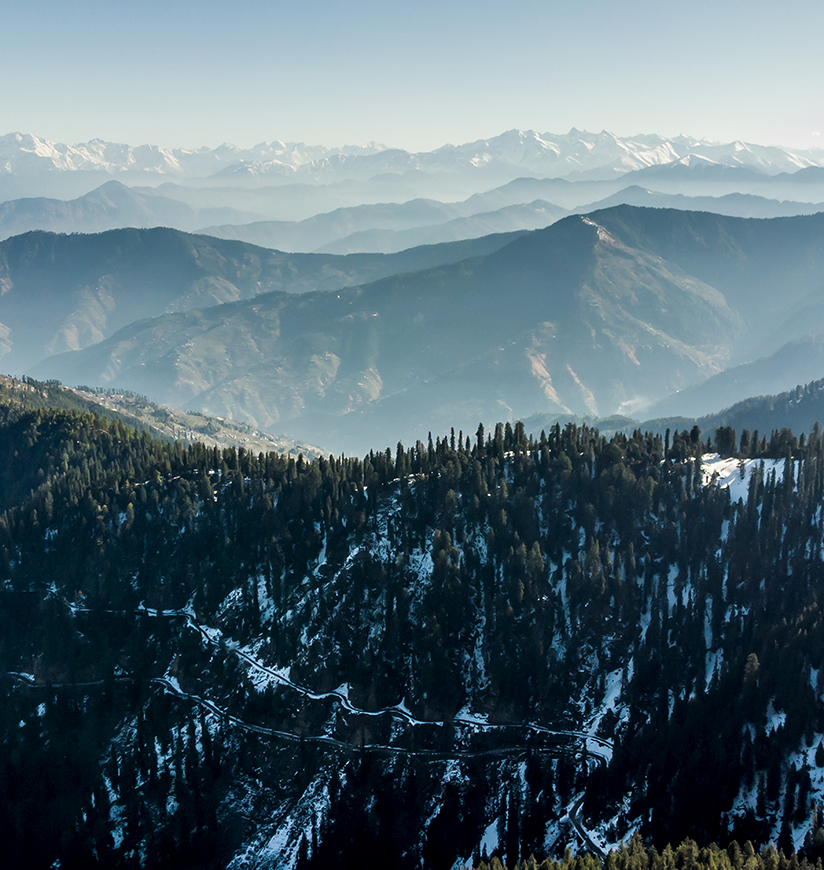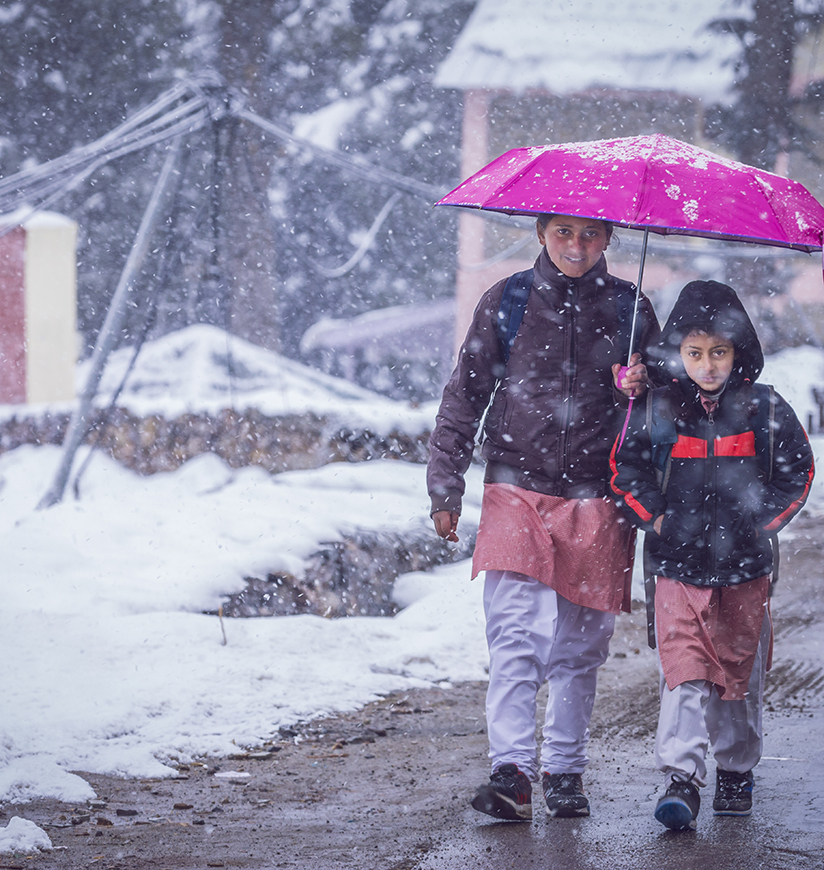Nature's masterpiece
Chitkul's enchantment begins with its stunning natural beauty, which harmoniously merges with the grandeur of the surrounding Himalayas. The village offers a mesmerizing view of the Himalayan mountains that leaves visitors in awe of nature's magnificence. The Baspa River, gracefully winding its way through Chitkul, not only enhances the village's scenic charm but also nourishes the local ecosystem. From the captivating alpine meadows to the diverse flora and fauna, Chitkul's natural resources are as abundant as they are diverse. Terraced fields, where potatoes, peas, barley, and apples thrive, showcase the artistry of agriculture. The village's pure air and pristine environment make it a sanctuary for those seeking solace in the embrace of nature.
Celebrating local tradition
Beneath its natural allure, Chitkul reveals a vivid cultural mosaic. Its cuisine, deeply rooted in Kinnauri tradition, offers delectable delights such as 'Chana Madra,' 'Siddu,' and 'Dham,' providing a sensory journey into local flavors. The village's architecture, adorned with intricately carved wooden houses and ornate doorways, reflects the age-old building techniques of the region. Travelers fortunate enough may witness traditional folk music and dance performances during local festivals, where colorful costumes and lively routines paint a vivid picture of Kinnauri culture. Engaging with the locals, learning the Kinnauri language, and observing their daily activities offer valuable insights into their way of life, forging meaningful connections.
For a greener tomorrow
What sets Chitkul apart is its unwavering commitment to sustainability. The village actively participates in afforestation and reforestation efforts, planting native trees to restore degraded lands and enhance biodiversity. Sustainable agriculture practices, minimizing pesticide use and promoting organic farming, protect the soil and prevent water pollution. The community ardently opposes plastic use, advocating for eco-friendly alternatives to safeguard the environment. Embracing energy-efficient technologies like LED lighting and exploring renewable energy options contribute to their eco-conscious approach. Cleanliness camps and responsible waste management initiatives further underscore the village's dedication to a cleaner and healthier living space.
A playground of adventures
For the adventurous spirit, Chitkul unfurls a realm of possibilities. Trekkers and mountaineers can embark on the famed Kinnaur Kailash Parikrama trek, a circumnavigation of the sacred Kinnaur Kailash mountain revered by both Hindus and Buddhists. The ancient trade route of Borso Pass, once a lifeline for locals, has transformed into an adventure for trekkers and mountaineers, offering challenges and breathtaking vistas in equal measure. The Lamkhaga Pass, meandering through remote valleys of Kinnaur and Garhwal, unfolds an exhilarating 90 km journey, revealing the raw beauty of the region. Nature enthusiasts can explore the Chitkul Wildlife Sanctuary, a habitat for diverse wildlife, including the elusive snow leopard, or take leisurely strolls along the Baspa River, immersing themselves in the tranquility of its flow.
Best time to visit
The most enjoyable time for most travelers to explore Chitkul is during the summer months (March to June). This is when the weather is delightful, and all the activities and attractions are easily accessible. However, if you have a fondness for snowy landscapes and chilly weather, the winter season (December to February) offers a one-of-a-kind and visually captivating experience. It's worth noting that it's wise to steer clear of the monsoon season due to the potential for landslides and travel interruptions.













